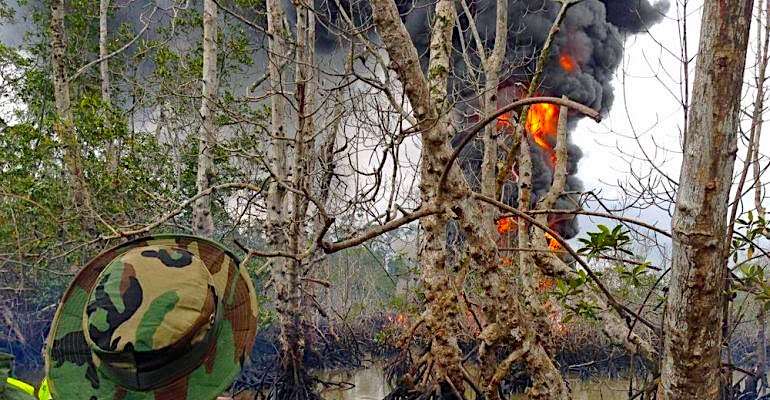Oil Theft In the Niger Delta: A Region In Crisis

It is a truism that crude oil politics has plunged Nigeria into endless struggle for power, triggered by the propensity to acquire wealth, control and influence. Oil politics has created a rent seeking class and a cruel cabal that thrives on oppression, intimidation and marginalization. Owing to the skewed federalism we operate obnoxious laws such as the Petroleum Act the Land Use Act and other oppressive laws exist to sustain the Nigerian enterprise.
The Niger Delta, a region in southern Nigeria, is home to some of the world's most extensive oil reserves. However, this natural blessing has turned into a curse, as oil theft has become a rampant and destructive practice in the area. Oil theft, also known as oil bunkering, has far-reaching consequences, affecting not only the economy but also the environment, local communities, and the very fabric of the region.
One of the knotty is issues amidst the ecological problems of the region is Oil theft. Oil theft in the Niger Delta is a complex issue, driven by a combination of factors. Decades of corruption, mismanagement, and neglect have led to widespread poverty, unemployment, and disillusionment among the local population. Criminal networks, militant groups, and even some security personnel have exploited this situation, tapping into the lucrative oil trade.
Oil thieves use various methods to siphon oil from pipelines. Criminals rupture pipelines, allowing oil to spill into the environment, and then collect the valuable resource. The most skillful youths among them steal crude oil and refine in makeshift facilities, producing substandard petroleum products. The refining process destroys the environment, putting biodiversity at risk as well as threatens local occupations such as fishing and farming.
A more sophisticated mode of stealing crude oil is the ship-to-ship transfer nethod. Stolen oil is transferred to vessels, which transport it to international markets. This involves vessels hence this mode of oil theft cannot take place without the convince of some rich men either in government or security agencies. In a period of rising unemployment, the youths are a ready tool in the hands of the bourgeois to execute their sinister plan.
One of the consequences of oil thef contamination of the Niger Delta ecosystem, leading to the contamination of the waterways, destruction of wildlife habitats and the grave effect on human health. Oil theft costs Nigeria billions of dollars annually, depriving the government of much-needed revenue. Oil theft-related violence and environmental damage have forced many families to flee their homes, leading to internal displacement and social instability. It has also fueled criminality, terrorism, and militancy, threatening regional security and stability.
Strengthening law enforcement, surveillance, and community engagement can help prevent oil theft. Also, investing in education, job creation, and infrastructure development can reduce poverty and unemployment, diminishing the appeal of oil theft.
The United Nations Environmental Programme believes that cleaning up oil spills and restoring damaged ecosystems can help restore the region's natural beauty and promote sustainable development. More importantly, collaborating with global partners to trace and prosecute oil thieves can help disrupt the illegal oil trade.
Oil theft in the Niger Delta is a pressing issue that demands urgent attention and collective action. Since crude oil is the mainstay of Nigeria's economy, the nation's economic viability depends on how much oil we produce. The Tinubu administration can help restore the nation's prosperity by curbing oil theft to reposition her economy and , protect its environment for the greater good of all.
